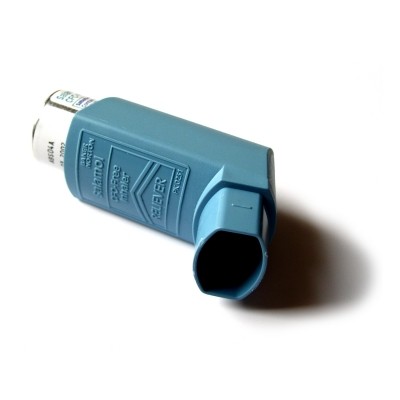Evidence hints at asthma-obesity link as frequency increases in children: Study

The US study, carried out amongst non-obese children aged between five to eight years of age, also found the chances significantly diminish if an asthma inhaler was used to ease asthma complications.
Researchers speculated that the medication used in these inhalers may have a direct effect on fat cells and therefore offered protection against obesity.
The prevalence of obesity and asthma among both children and adults has increased hand-in-hand over the last few decades suggesting their co-occurrence may be related.
One reason obesity is more prevalent in children with asthma is because respiratory problems may cause this population to play and exercise less.
However, the study accounted for physical activity. In addition, a side effect of many asthma medications is weight gain.
Ten years’ worth of data

The Southern California Children’s Health Study (CHS) was the starting point for this investigation, where 2,171 children were enrolled and were followed up for a period of 10 years.
A repeat study was also performed in another sample of 2,684 CHS children with a mean age of 9.7 to 17.8 years.
Here, height and weight were measured every year in order to categorise the children into normal, overweight and obese groups.
Asthma status was determined by either the child’s parent or a diagnosis by a doctor. Statistical models were employed to evaluate associations of asthma history with obesity incidence during follow-up.
The team recorded 13.5% of the children had asthma when they enrolled in the study. During that decade, 15.8% of these children became obese.
The team from the University of Southern California (USC) found that children with a diagnosis of asthma at the start of the study were 51% more likely to develop obesity during childhood and adolescence compared to children without asthma.
Use of asthma rescue medications at cohort entry reduced the risk of developing obesity by 43%.
Additionally, the significant association between asthma history and increased risk of developing obesity was replicated in the second study.
“Early diagnosis and treatment of asthma may help prevent the childhood obesity epidemic," said Dr Frank Gilliland, senior author of the study and a professor of preventive medicine at the Keck School of Medicine of USC.
"Part of the problem may be a vicious cycle where asthma and obesity negatively affect each other. Our results also suggest that asthma inhalers may help prevent obesity in children. It is interesting that the correlation exists irrespective of physical activity and other asthma medication use."
No cause and effect
The study pointed out that few studies have found a link between early-life asthma and increased risk of developing obesity especially those that monitor children over a decade.
The authors also noted that not all children who have asthma are obese or will become obese. In addition, existing scientific literature has not been able to say asthma causes obesity.
“Biological mechanisms underlying the increased risk of obesity due to asthma are uncertain,” the study concluded.
“Some studies showed that long-term treatment with glucocorticosteroids in asthmatic children can influence lipid metabolism by increasing the uptake of lipids from digestive system and enhancing lipids storage in tissues, especially in the trunk.”
The study highlighted a few limitations of the study including the use self-reported questionnaires as sources of data. Researches also had limited information about exercise and did not collect data about the youngster’s diets.
Source: American Journal of Respiratory and Critical Care Medicine
Published online ahead of print: doi: 10.1164/rccm.201608-1691OC
“Effects of Childhood Asthma on the Development of Obesity among School aged Children.”
Authors: Frank Gilliland et al.
















